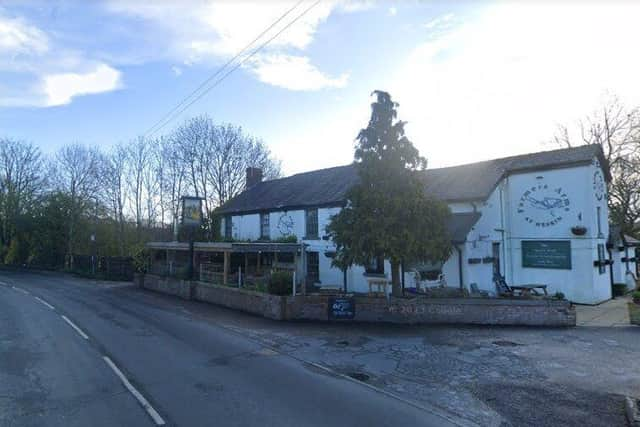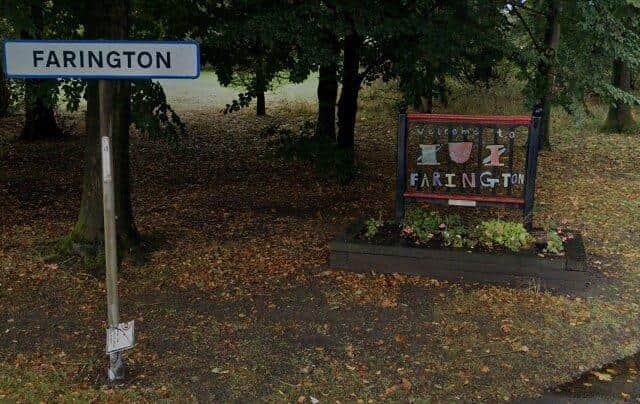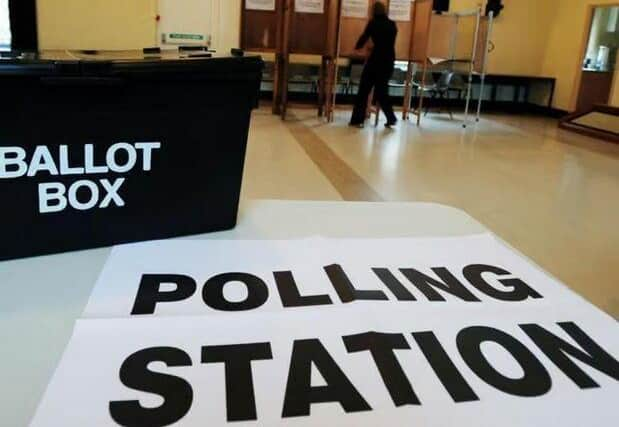Boundary changes: parts of Chorley to move into South Ribble in spite of "considerable opposition"
and live on Freeview channel 276
The shift is part of a nationwide shake-up which has seen the borders of the current Chorley and South Ribble seats redrawn. The aim of the process – undertaken by the Boundary Commission for England - was to ensure that voting areas across the country are of broadly similar size.
The changes do not affect any local council boundaries - meaning all of the areas amended for parliamentary purposes will remain within their current local authority’s patch.
Advertisement
Hide AdAdvertisement
Hide AdThe revised map will see the whole of the Eccleston, Heskin and Charnock Richard ward fall within the South Ribble seat - a total of almost 6,000 voters. Currently, only Eccleston is in the South Ribble voting area, while Heskin Green, Charnock Green and Charnock Richard are all in the Chorley constituency.


Meanwhile, the Croston, Mawdesley and Euxton South ward is to remain in the South Ribble constituency, where it currently sits.
The commission acknowledged that both suggestions had been “very poorly received” and the subject of "considerable opposition". However, it said that in its final consultation late last year - the third to take place during the two-year process to decide the new boundaries - it had “not been persuaded” to amend the proposal, “not least as large parts of these wards are already in the existing South Ribble constituency”.
The organisation had previously reversed controversial plans in Chorley to hive off the Adlington & Anderton and Chorley North East wards from the borough seat and put them - and two wards from Hyndburn - in a proposed new West Pennine Moors constituency incorporating the current Rossendale and Darwen seat, a move which a Chorley Council meeting back in 2021 heard had reduced one resident to tears.
Advertisement
Hide AdAdvertisement
Hide AdThe South Ribble seat itself will keep hold all the wards in the South Ribble Borough Council area that currently sit within its borders, while gaining the Farington East and Farington West wards from Ribble Valley.


However, the Walton-le-Dale East, Walton-le-Dale West, Bamber Bridge East, Bamber Bridge West, Lostock Hall, Coupe Green & Gregson Lane and Samlesbury & Walton wards will all remain in the Ribble Valley seat, which the commission described as “a positive outcome” for most of those areas.
Following the boundary changes, almost all constituencies in England will now contain between 69,724 and 77,062 voters.
In making its proposals, the commission was able to consider factors including any local ties that may be broken by changes in constituencies, as well as special geographical characteristics and existing constituency and local authority borders. Although commissioners had sought to draw up constituencies "by reference to local authority external boundaries as far as practicable", it had "nevertheless often proved necessary to cross these boundaries in order to form constituencies that comply with the permitted electorate range", the organisation said.
Advertisement
Hide AdAdvertisement
Hide AdThe government will now draft an order containing the recommendations of all four Parliamentary Boundary Commissions across the UK. Once that is approved by the Privy Council, the new constituencies will be used for the next general election following that date – but for any by-election that may take place beforehand, existing constituencies will be used.


CONSTITUENCY COMPOSITIONS
This is how the newly-drawn constutuencies will look, presented in the format ward name - council area - total number of electors:
Chorley (total electorate – 74,568)
Adlington & Anderton – Chorley – 6,229
Buckshaw & Whittle – Chorley – 6,785
Chorley East – Chorley – 6,074
Chorley North & Astley – Chorley – 6,038
Chorley North East – Chorley – 5,590
Chorley North West – Chorley – 5,872
Chorley South East & Heath Charnock – Chorley – 6,902 –
Chorley South West – Chorley – 5,701
Clayton East, Brindle & Hoghton – Chorley – 6,678
Clayton West & Cuerden – Chorley – 6,566
Coppull – Chorley – 6,194
Euxton – Chorley – 5,939
South Ribble (total electorate – 72,029)
Croston, Mawdesley & Euxton South – Chorley – 6,187
Eccleston, Heskin & Charnock Richard – Chorley – 5,932
Broad Oak – South Ribble – 3,541
Broadfield – South Ribble – 3,667
Buckshaw & Worden – South Ribble – 3,761
Charnock – South Ribble – 2,932
Earnshaw Bridge – South Ribble – 3,473
Farington East – South Ribble – 3,316
Farington West – South Ribble – 3,188
Hoole – South Ribble – 3,360
Howick & Priory – South Ribble – 5,627
Leyland Central – South Ribble – 3,554
Longton & Hutton West – South Ribble – 4,685
Middleforth – South Ribble – 5,520
Moss Side – South Ribble – 3,107
New Longton & Hutton East – South Ribble – 3,864
Seven Stars – South Ribble – 3,080
St. Ambrose – South Ribble – 3,235
Ribble Valley (total electorate - 75,993)
Bamber Bridge East – South Ribble – 3,467
Bamber Bridge West – South Ribble – 3,095
Coupe Green & Gregson Lane – South Ribble – 3,491
Lostock Hall – South Ribble – 5,179
Samlesbury & Walton – South Ribble – 3,284
Walton-le-Dale East – South Ribble – 3,464
Walton-le-Dale West – South Ribble – 3,384
Greyfriars – Preston – 6,344
Preston Rural East – Preston - 6,027
Preston Rural North – Preston – 4,860
Sharoe Green – Preston – 6,206
Alston & Hothersall – Ribble Valley – 2,114
Billington & Langho – Ribble Valley – 2,674
Bowland – Ribble Valley – 1,286
Brockhall & Dinckley – Ribble Valley -1,304
Chipping – Ribble Valley – 1,188
Clayton-le-Dale & Salesbury – Ribble Valley -1,352
Derby & Thornley – Ribble Valley – 2,442
Dilworth – Ribble Valley – 2,196
Gisburn & Rimington – Ribble Valley – 1,205
Hurst Green & Whitewell – Ribble Valley -1,106
Mellor – Ribble Valley – 2,418
Ribchester – Ribble Valley – 1,294
Waddington, Bashall Eaves & Mitton – Ribble Valley -1,274
West Bradford & Grindleton – Ribble Valley – 1,367
Whalley Nethertown – Ribble Valley – 1,169
Wilpshire & Ramsgreave – Ribble Valley – 2,803
Source: Boundary Commission for England